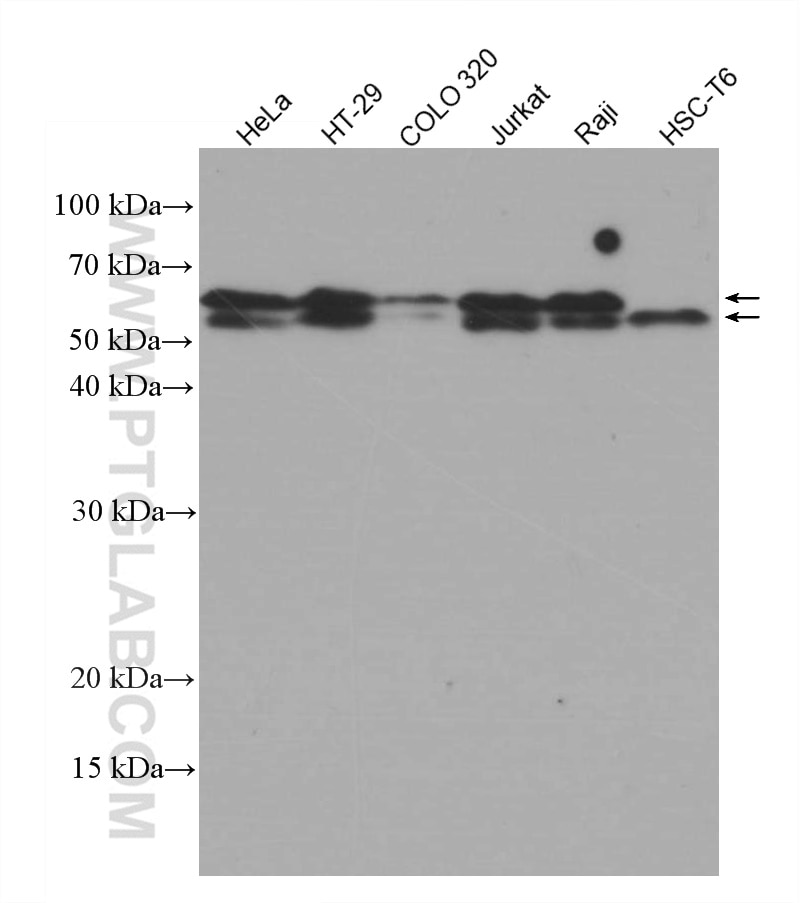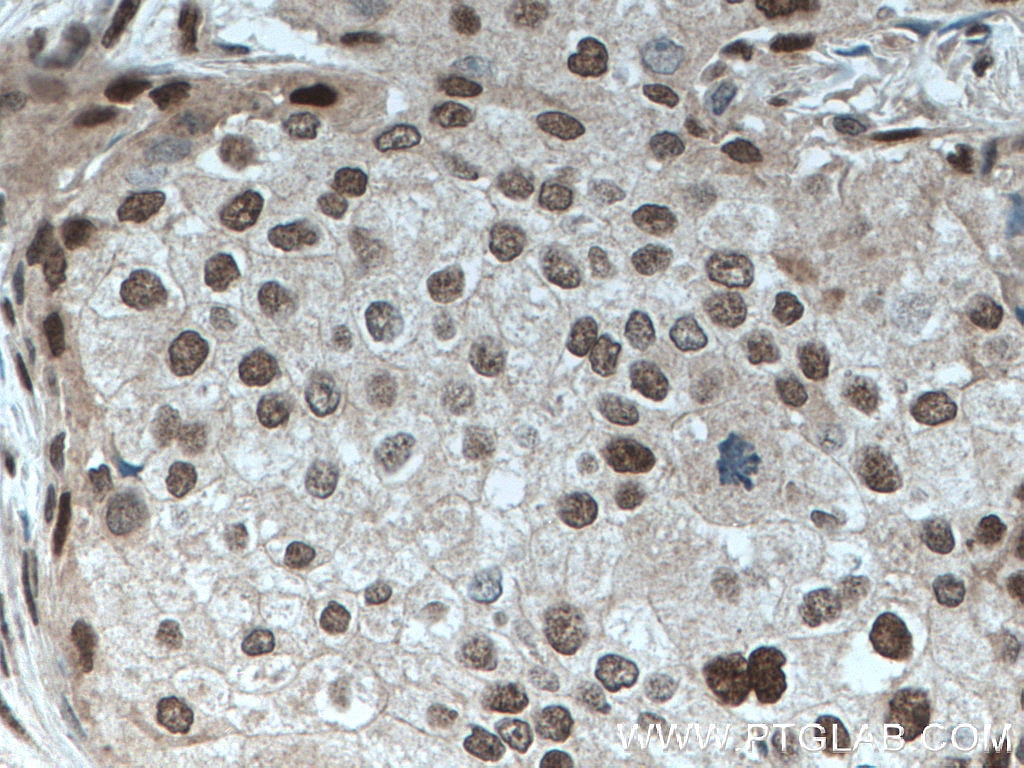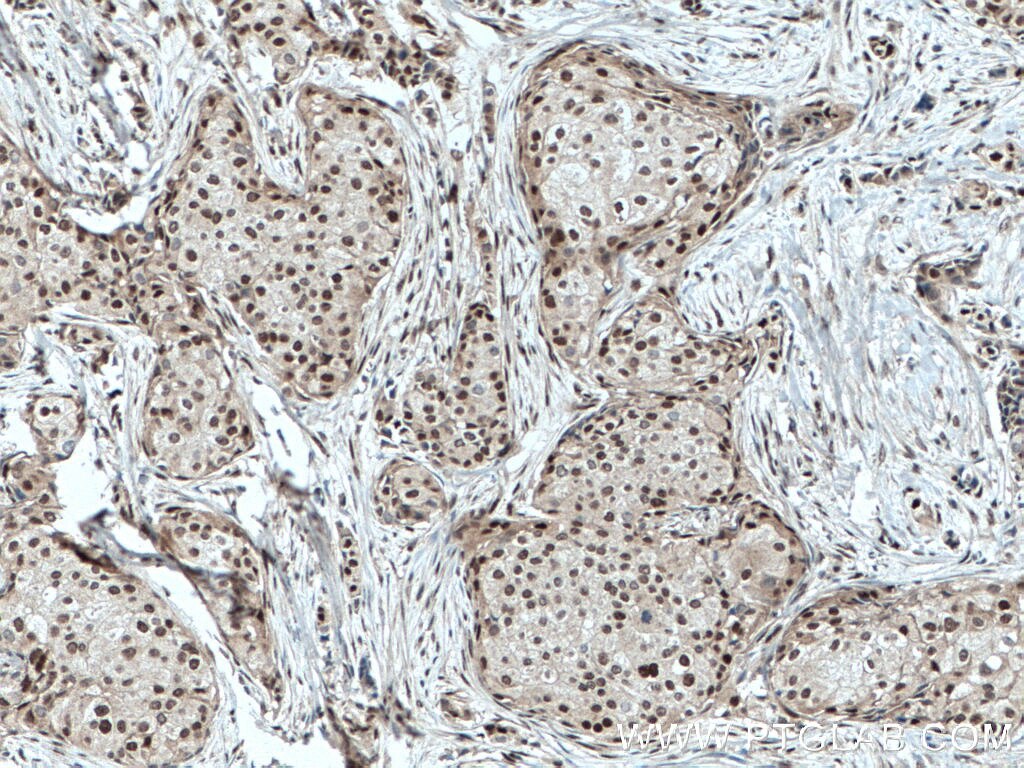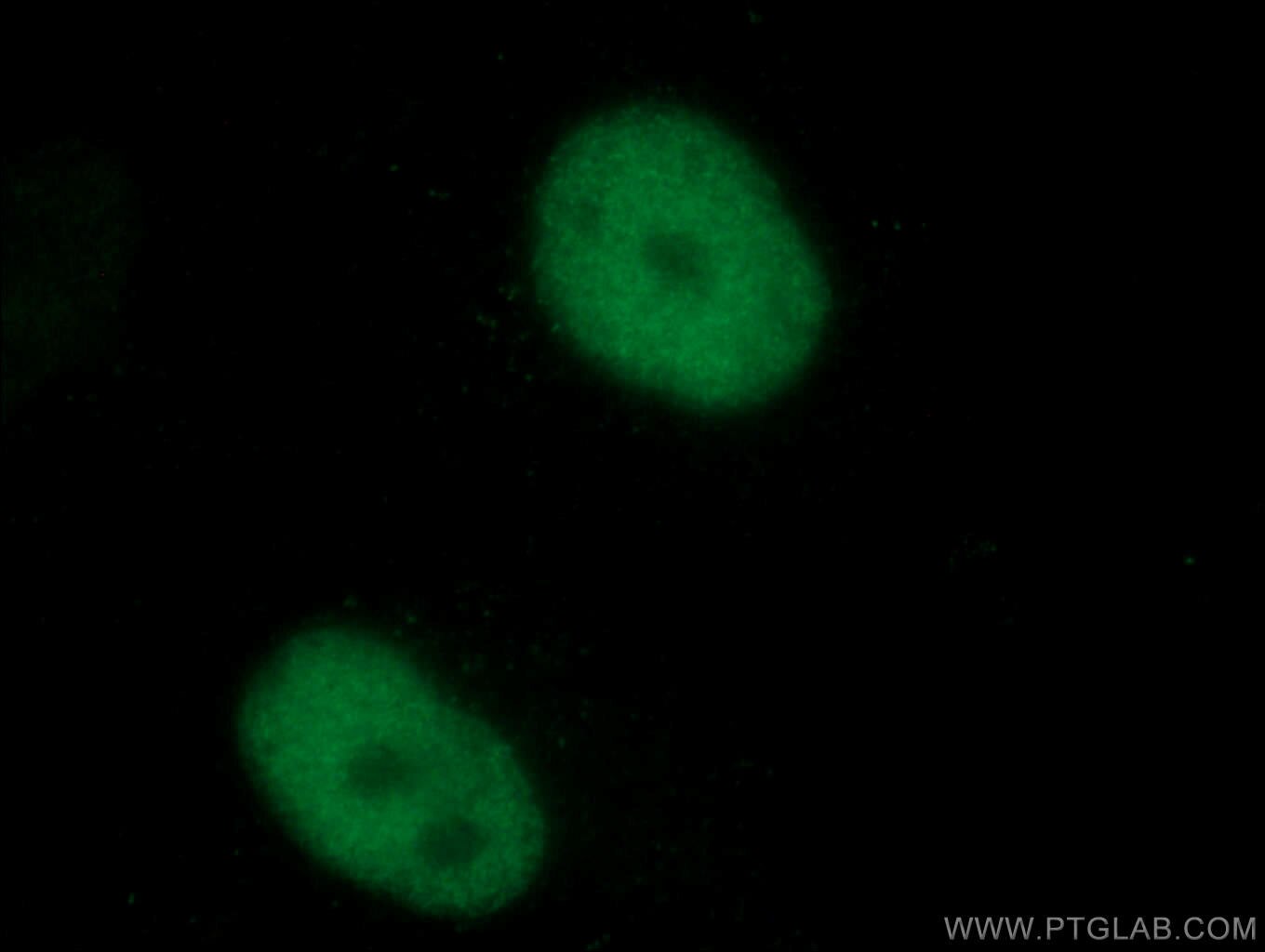Anticorps Monoclonal anti-TDG
TDG Monoclonal Antibody for IF, IHC, WB, ELISA
Hôte / Isotype
Mouse / IgG2b
Réactivité testée
Humain, rat, souris
Applications
WB, IHC, IF, ELISA
Conjugaison
Non conjugué
CloneNo.
1G2E2
N° de cat : 66707-1-Ig
Synonymes
Galerie de données de validation
Applications testées
| Résultats positifs en WB | cellules HeLa, cellules COLO 320, cellules HSC-T6, cellules HT-29, cellules Jurkat, cellules Raji |
| Résultats positifs en IHC | tissu de cancer du sein humain, il est suggéré de démasquer l'antigène avec un tampon de TE buffer pH 9.0; (*) À défaut, 'le démasquage de l'antigène peut être 'effectué avec un tampon citrate pH 6,0. |
| Résultats positifs en IF | cellules HepG2, |
Dilution recommandée
| Application | Dilution |
|---|---|
| Western Blot (WB) | WB : 1:1000-1:8000 |
| Immunohistochimie (IHC) | IHC : 1:200-1:800 |
| Immunofluorescence (IF) | IF : 1:50-1:500 |
| It is recommended that this reagent should be titrated in each testing system to obtain optimal results. | |
| Sample-dependent, check data in validation data gallery | |
Informations sur le produit
66707-1-Ig cible TDG dans les applications de WB, IHC, IF, ELISA et montre une réactivité avec des échantillons Humain, rat, souris
| Réactivité | Humain, rat, souris |
| Hôte / Isotype | Mouse / IgG2b |
| Clonalité | Monoclonal |
| Type | Anticorps |
| Immunogène | TDG Protéine recombinante Ag27408 |
| Nom complet | thymine-DNA glycosylase |
| Masse moléculaire calculée | 410 aa, 46 kDa |
| Poids moléculaire observé | 55-60 kDa |
| Numéro d’acquisition GenBank | BC037557 |
| Symbole du gène | TDG |
| Identification du gène (NCBI) | 6996 |
| Conjugaison | Non conjugué |
| Forme | Liquide |
| Méthode de purification | Purification par protéine A |
| Tampon de stockage | PBS avec azoture de sodium à 0,02 % et glycérol à 50 % pH 7,3 |
| Conditions de stockage | Stocker à -20°C. Stable pendant un an après l'expédition. L'aliquotage n'est pas nécessaire pour le stockage à -20oC Les 20ul contiennent 0,1% de BSA. |
Informations générales
TDG belongs to the TDG/mug DNA glycosylase family. TDG corrects G/T mispairs to G/C pairs. It is capable of hydrolyzing the carbon-nitrogen bond between the sugar-phosphate backbone of the DNA and a mispaired thymine. In addition to the G/T, it can remove thymine also from C/T and T/T mispairs in the order G/T >> C/T > T/T. It has no detectable activity on apyrimidinic sites and does not catalyze the removal of thymine from A/T pairs or from single-stranded DNA. It can also remove uracil and 5-bromouracil from mispairs with guanine. RNF4 interacts with and requires the base excision repair enzymes TDG and APE1 for active demethylation (PMID:20696907). TDG is modified by SUMO-1 and SUMO-2/3.The molecular weight of non-modified TDG is 46 kDa and modified TDG is 55-60 kDa.
Protocole
| Product Specific Protocols | |
|---|---|
| WB protocol for TDG antibody 66707-1-Ig | Download protocol |
| IHC protocol for TDG antibody 66707-1-Ig | Download protocol |
| IF protocol for TDG antibody 66707-1-Ig | Download protocol |
| Standard Protocols | |
|---|---|
| Click here to view our Standard Protocols |





